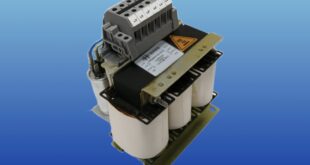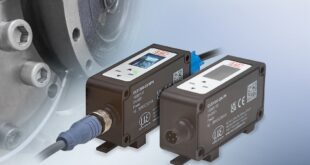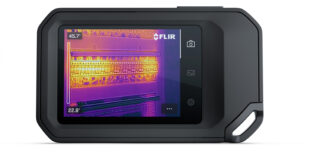Labcell is introducing the METER Tempos Thermal Properties Analyser. This offers major benefits for users in the renewables sector when laying high-voltage electric cables underground. Only by understanding the soil conditions can trenches be backfilled with the optimum material.
Compared with alternatives, the handheld Tempos is faster, more accurate and can be used in all weather conditions as well as in a laboratory. As a result, it saves time and money during the planning and construction phases of solar farms and land-based wind turbines. Depending on the sensor used, the Tempos takes accurate readings of thermal conductivity, thermal resistivity, thermal diffusivity and specific heat.
Manufactured in the USA by METER Group, the Tempos takes a fresh approach to measuring thermal properties of soils. In particular, the instrument incorporates high-power processors that handle proprietary algorithms, enabling accurate readings to be taken in as little as one minute. In contrast, other instruments typically require 10-15 minutes per reading. Despite the speed with which readings are obtained, the Tempos resolves temperatures to ±0.001°C.
Furthermore, the heat input to the soil is minimal and closely monitored to ensure the instrument does not cause moisture migration and false readings. The TEMPOS also corrects for the linear temperature drift that results from small changes in ambient temperature – as might be caused by the sun warming the soil, for example – which helps to improve accuracy. With an operating temperature range of 0 to 50°C, the Tempos can be used on-site all year round.
METER has developed a range of compatible sensors for the Tempos: the KS-3 with a single 6 cm needle for measuring thermal conductivity; the TR-3 with a single 10cm needle for measuring thermal conductivity; the SH-3 with 3cm dual needles for measuring thermal conductivity, thermal diffusivity and volumetric specific heat capacity; and the RK-3 with a single 6 cm thick needle for measuring thermal conductivity. Users can therefore select the best sensor for their application and avoid the compromises associated with a ‘one-sensor-fits-all’ approach.
The Tempos has been designed for ease of use on site. It features a daylight-readable colour graphical display, a long battery life, an elastomeric covering on the ergonomic housing for a secure grip, and large buttons that can be operated even when wearing gloves. It is also lightweight and comes in a carry case that incorporates space for storing interchangeable sensors. Data for over 2000 measurements can be stored onboard the instrument for downloading at a convenient time.
Importantly, the Tempos complies with two key standards: ASTM D5334 (Standard Test Method for Determination of Thermal Conductivity of Soil and Soft Rock by Thermal Needle Probe Procedure); and IEEE 442 (IEEE Guide for Thermal Resistivity Measurements of Soils and Backfill Materials).
 Engineer News Network The ultimate online news and information resource for today’s engineer
Engineer News Network The ultimate online news and information resource for today’s engineer



